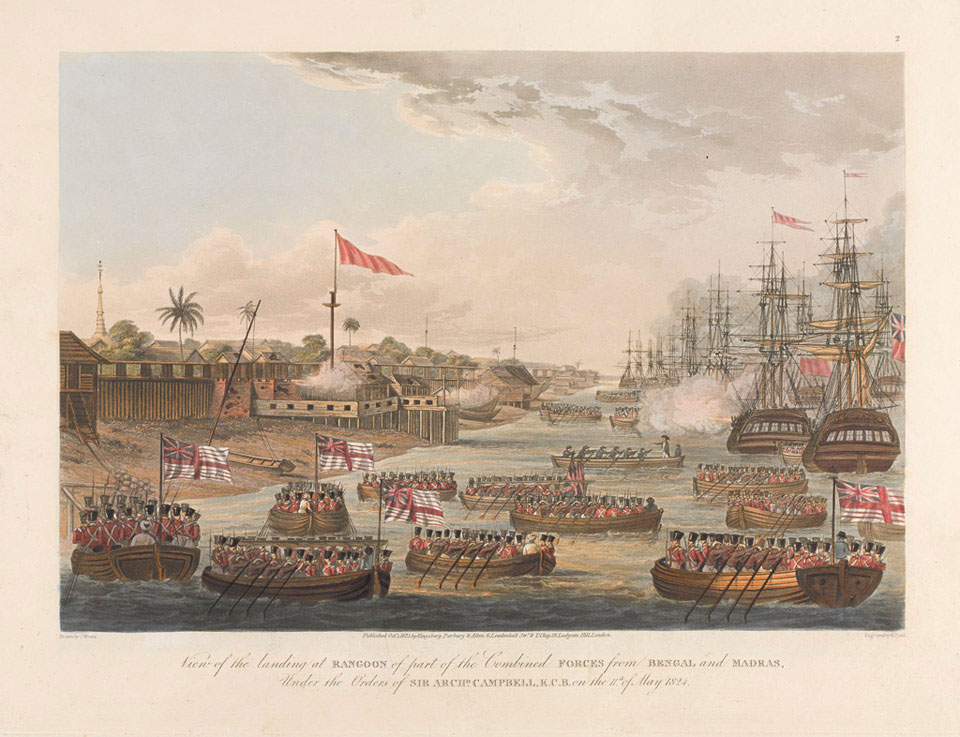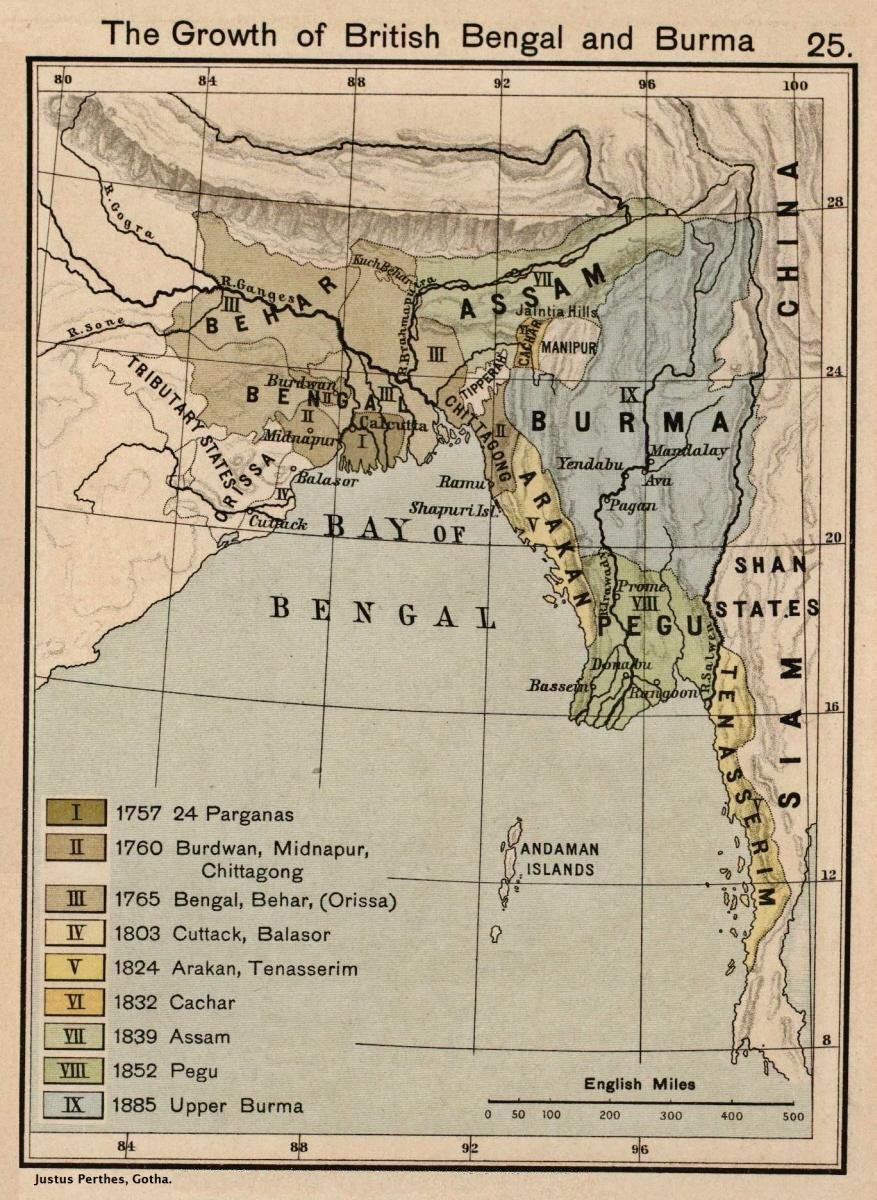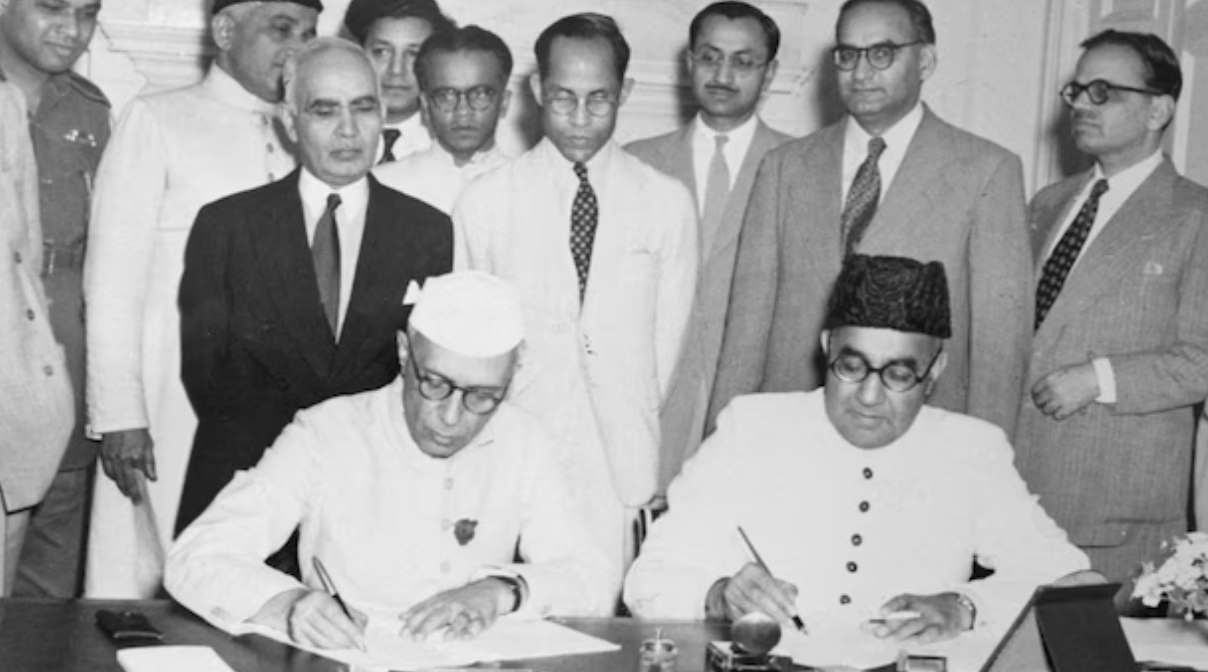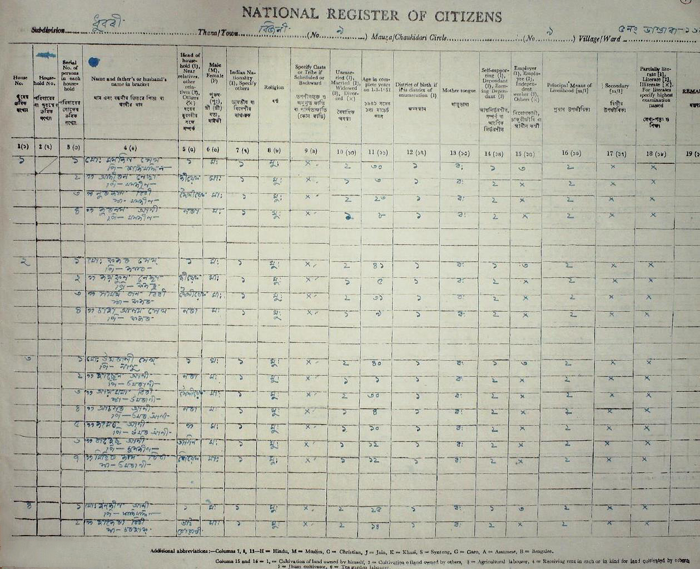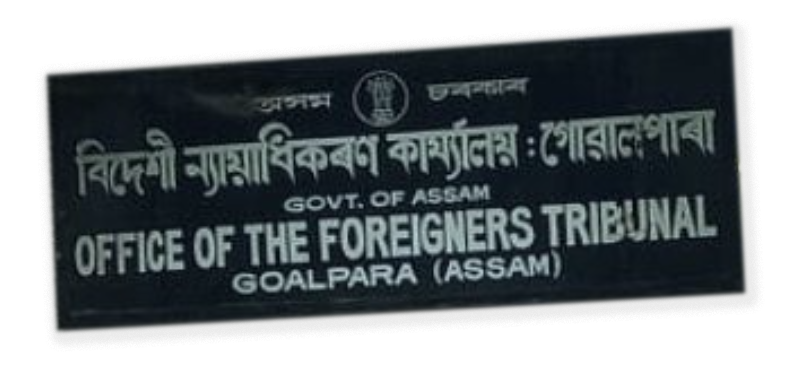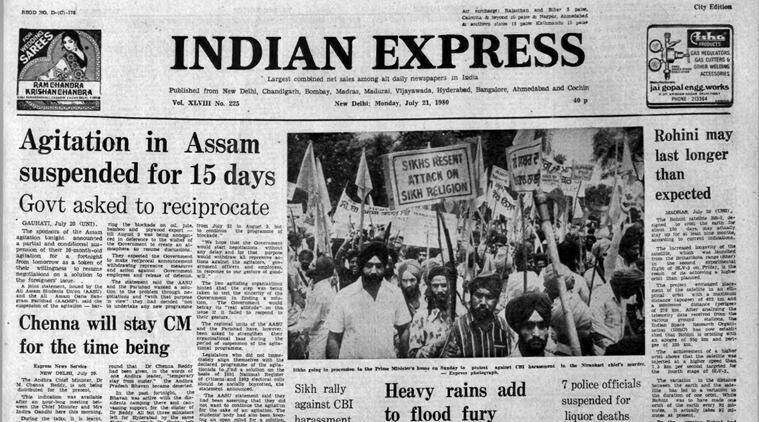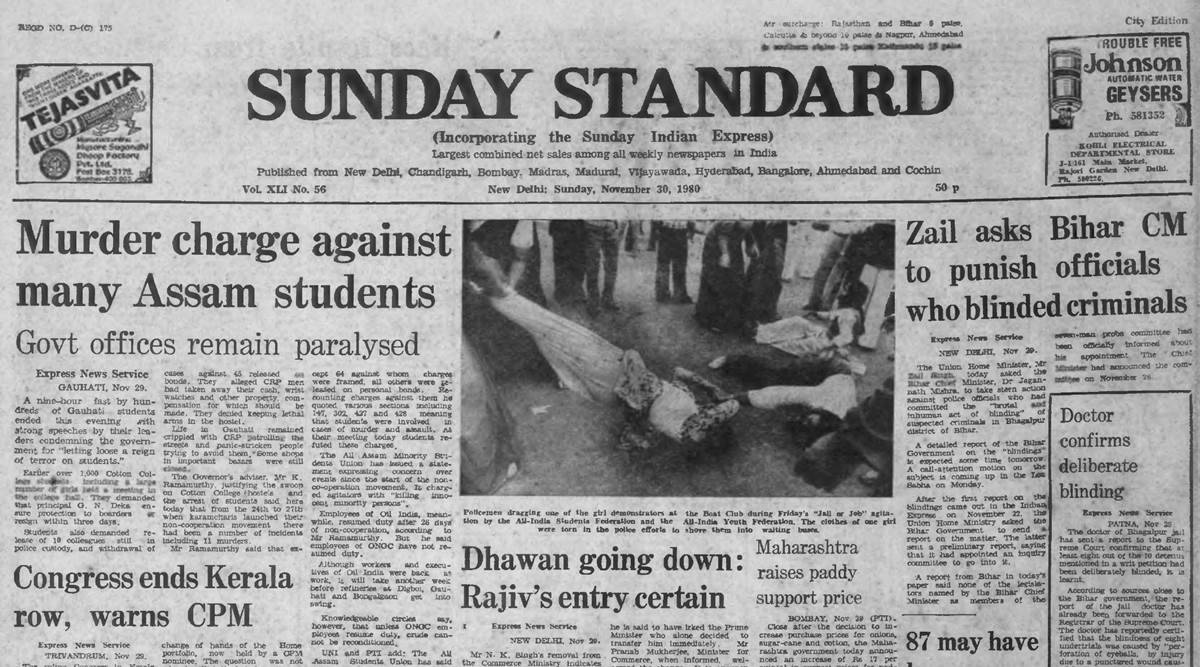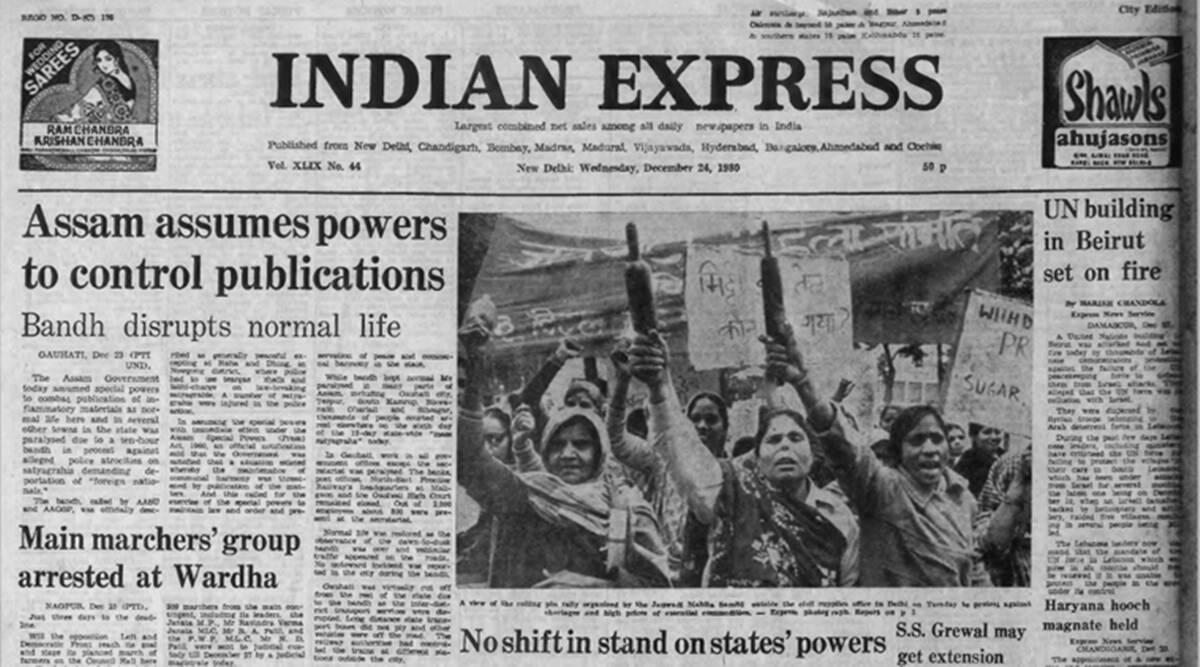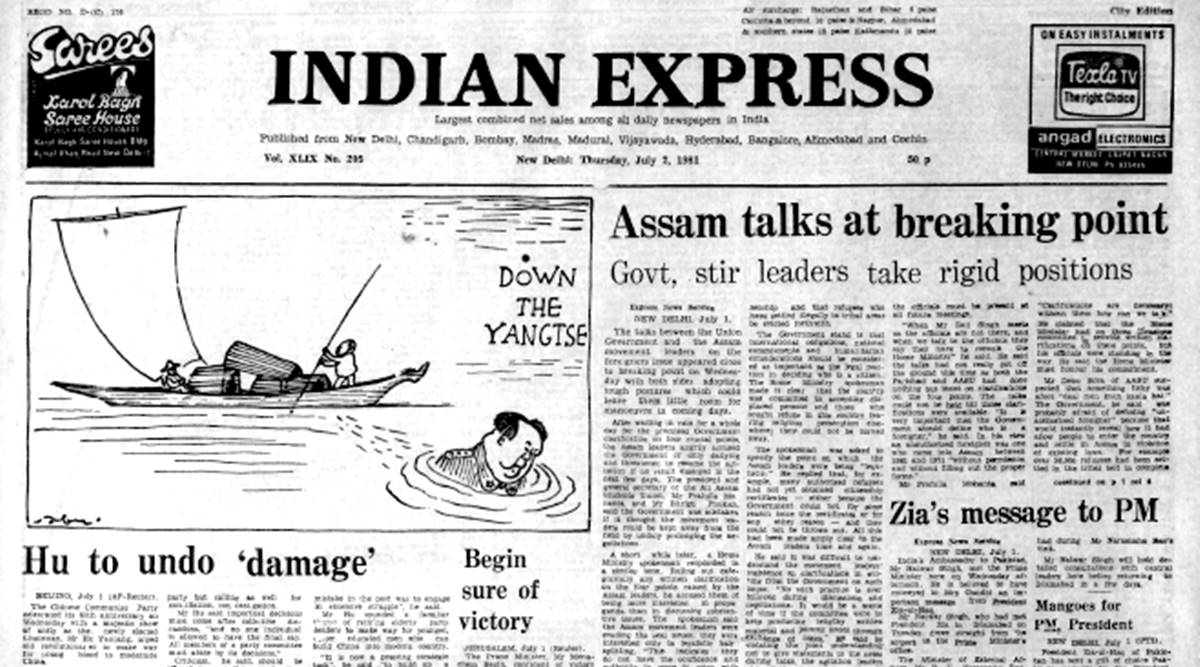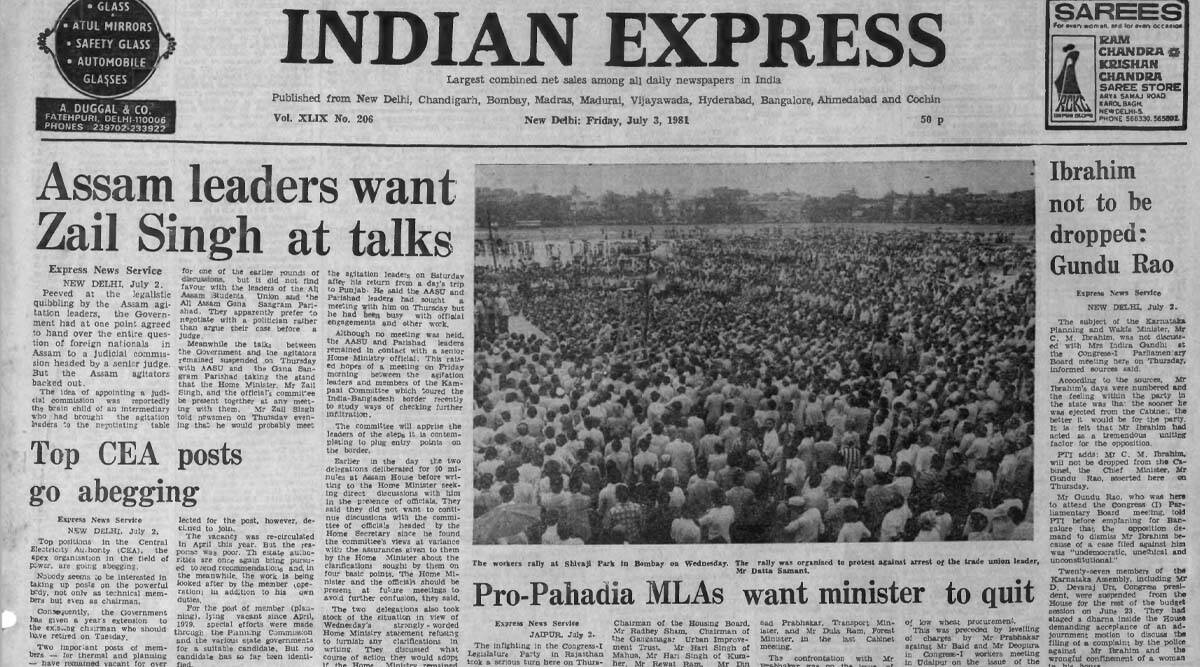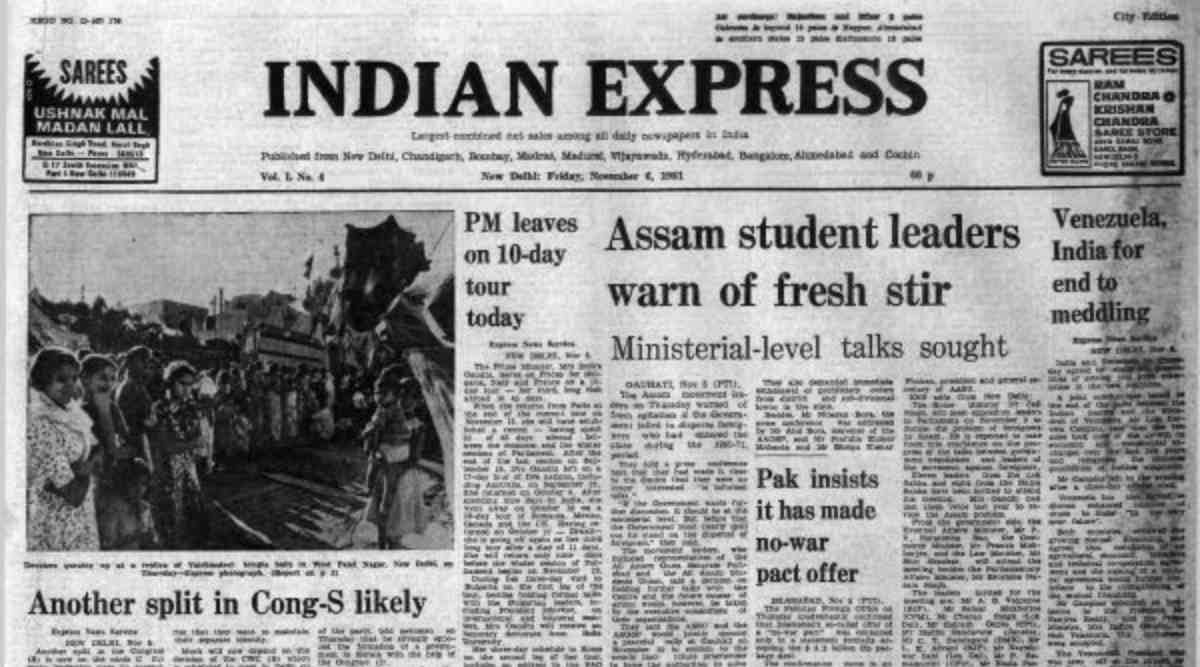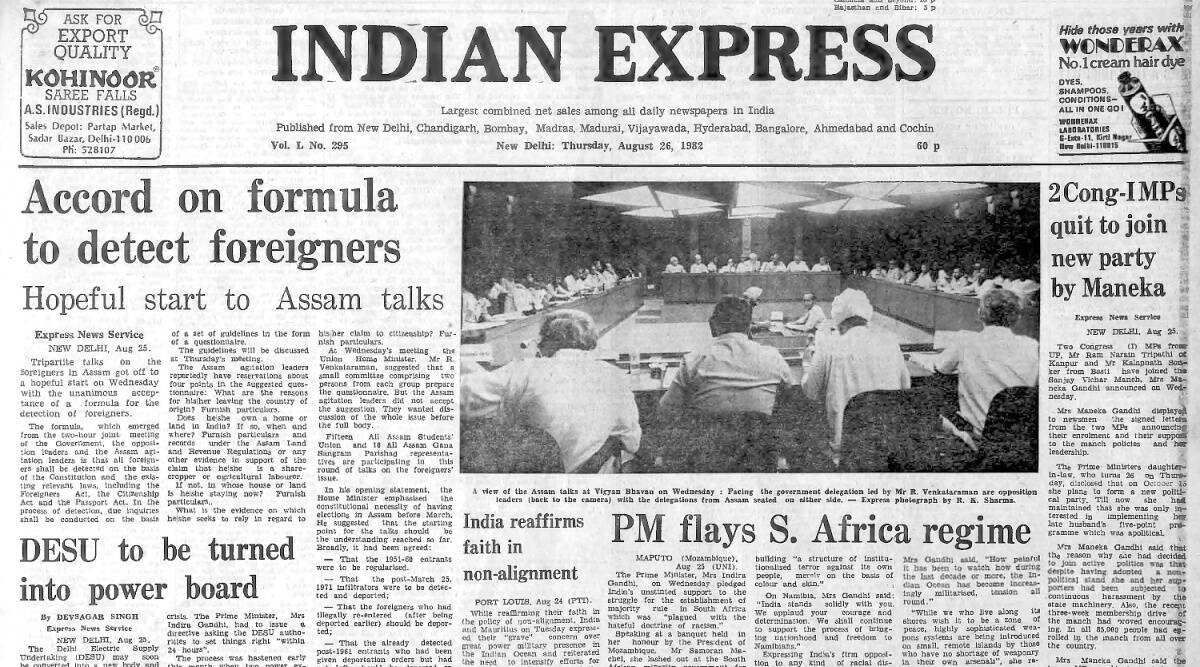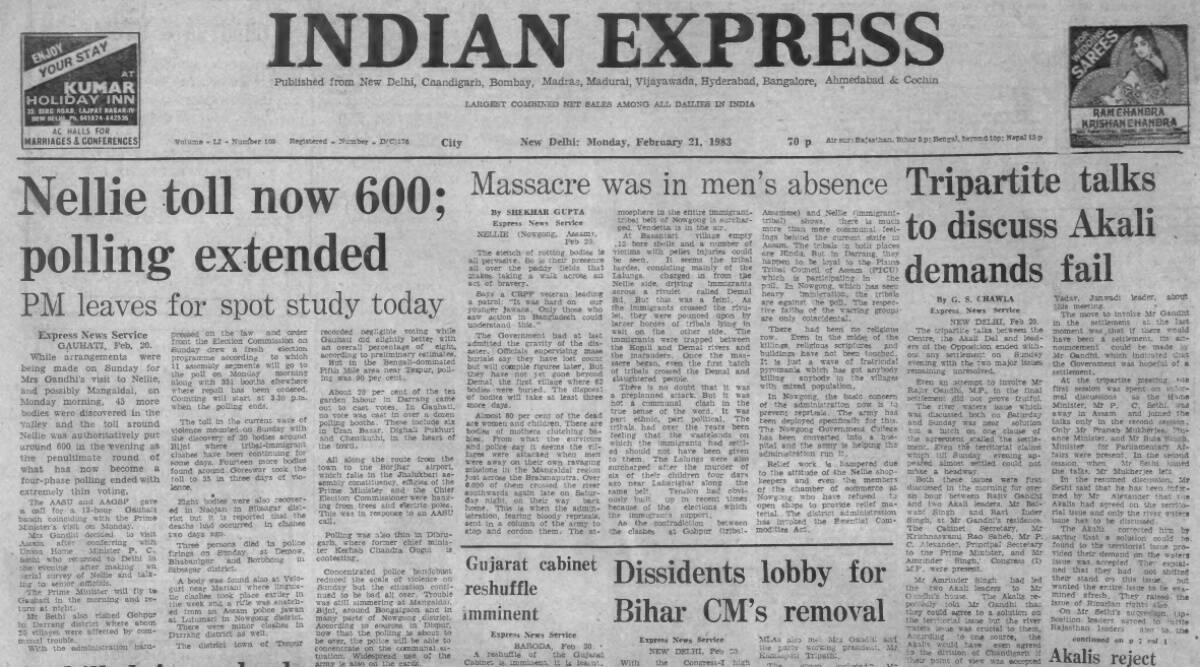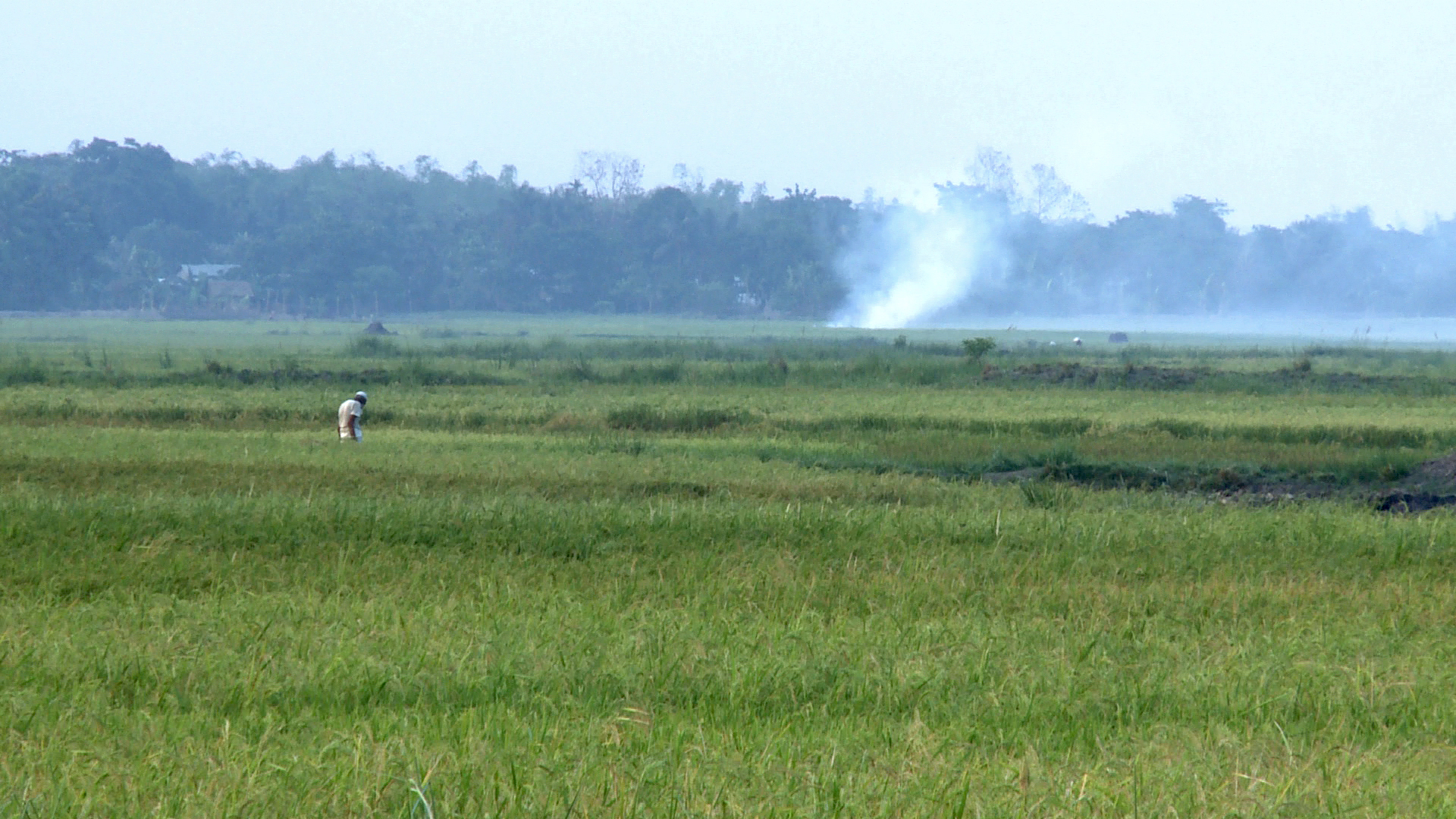1824–1826
1826-1832
Assam becomes a part of the Bengal Presidency
1874
Assam, including Sylhet with majority Bengali speakers, is severed from Bengal and becomes what is known as ‘North-East Frontier’ to benefit the British empire’s commercial interests.
1905
Bengal is partitioned by the British on religious lines under Lord Curzon and Assam becomes a part of the province of Eastern Bengal and Assam.
Map of Eastern Bengal with Assam, 1909. Source: https://commons.wikimedia.org/wiki/File:Easter_Bengal_and_Assam_with_Bhutan.jpg
1911
After massive protests of the Partition of Bengal by educated and middle class Bengalis, the reunification of East and West Bengal takes place. The following year Assam province is formed.
1947
Partition: The Indian subcontinent is divided into India and Pakistan (East and West).
Extract from India Wins Freedom, part-16 of the series, India’s Struggle For Freedom produced by Films Division 1985. Source: https://www.youtube.com/watch?v=vepQwxc0ekk&ab_channel=FilmsDivision
March 1950
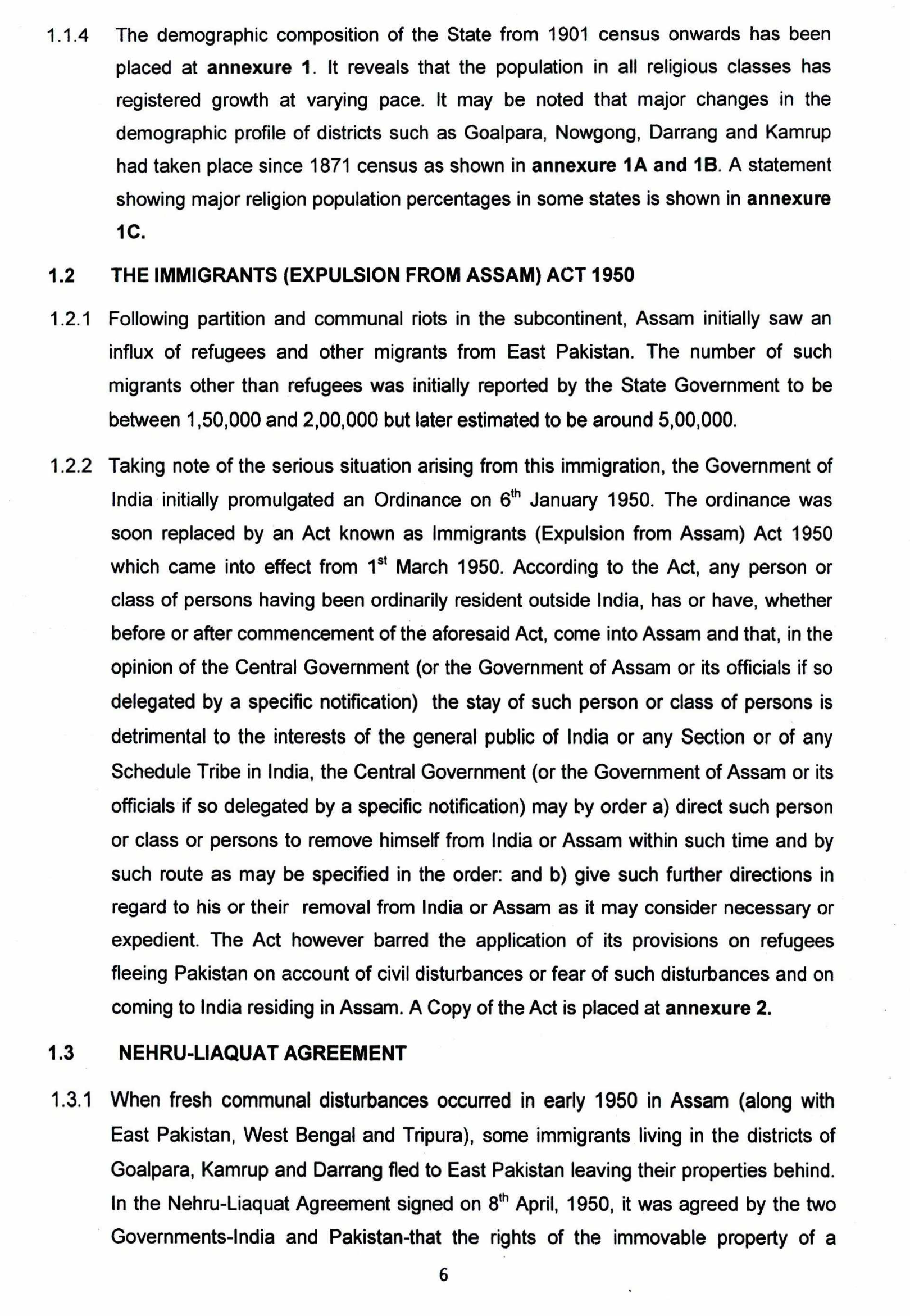

The Assam Immigration Expulsion Act is implemented to stop the movement of refugees from the Former East Pakistan
8 April 1950
Prime Minister Jawaharlal Nehru and Liaquat Ali Khan, prime minister of Pakistan, signing the agreement in Delhi, 1950. Source: https://www.indiatoday.in/news-analysis/story/nehru-liaquat-pact-that-amit-shah-referred-to-defend-citizenship-bill-1627036-2019-12-10
The Nehru Liaquat Pact is signed; this deals specifically with Bengal, Assam, Tripura:
—Refugees are allowed to return to the dispose of their property
—Abducted women and looted property are to be returned
—Forced conversions are unrecognised
—Safeguard of minority rights is agreed upon
—Visa system is introduced for refugees
1951
The first National Register of Citizens (NRC) exercise is conducted in Assam, led by V. Vaghaiwalla. It is an enumerative exercise that is carried alongside the Census, unlike the one in 2015. Many people’s names are left out of the first NRC.
Sample of 1951 NRC from Dhubri district in Assam. Source: https://nrcassam.nic.in/what-legacy.html
1964
1961–1966
Between 1961-1966 nearly 1.8 lakh people are either deported or “left the country voluntarily” to East Pakistan, and ‘Quit India’ notices are served to “suspected persons”.
“In the late ‘60s Bhanbhasa Sheik in Darrang district petitioned the Gauhati High Court saying that he had been wrongly served notice to leave the country. He told the court that he wanted to present a certified copy of the 1951 NRC bearing the names of his family members to prove his Indian citizenship…In its order dated 6 October 1969, the Gauhati High Court held that the extract of the 1951 NRC could not be considered as evidence [of citizenship]”
( Extract from Abhishek Saha’s No Land’s People, 2021)
1979–1985
Anti-foreigner agitation in Assam is led by the All Assam Students Union (AASU) and its allies who demand that the names of “illegal immigrants” be struck off the voters list.
Source: The Indian Express Archives.
18 February 1983
December 1983
The Illegal Migrants (Determination by Tribunals) IMDT Act is passed by the Parliament, in which the onus of proving citizenship is placed on the State and not the individual accused in Assam.
1985
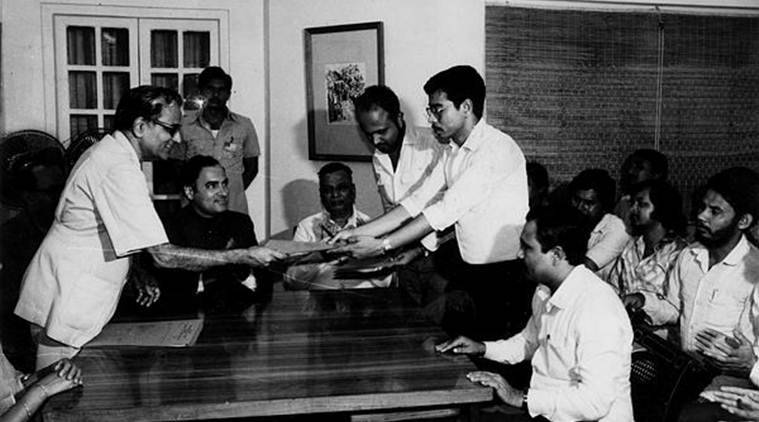
The Memorandum of Settlement on the Assam problem was signed between the Union Government and the leaders of the Assam movement at the residence of Prime Minister Rajiv Gandhi, 1985. Source: https://indianexpress.com/article/research/nrc-what-the-assam-accord-of-1985-said-about-immigrants-in-assam-5287009/
The Assam Accord was signed between the Rajiv Gandhi government and the All Assam Students Union (AASU) and its allies. As a part of the Act, all charges against those who indulged in acts of violence during the Agitation period are dropped, including against those who had been charge-sheeted for violence during the Nellie Massacre.
1997
The Election Commission marks around 3,70,000 people as “D” (Doubtful). These are primarily Muslims of Bengal origin and Bengali Hindus in Assam. Known thereafter as “Doubtful Voters”, they cannot vote or stand for elections and are referred to the steadily mushrooming Foreigners Tribunals to prove their citizenship.
Foreigners Tribunals start being set up again in Assam to prosecute the “D-voters”. There are currently 100 such Tribunals functioning in Assam.
2003
Amendment to the Citizenship Act of 1955: In the 2003 amendment, the Indian government sets the foundation for the creation of the National Population Register or NPR, in which people’s citizenship is to be verified. Once verified, people would become part of the “National Register of Indian Citizens” (NRIC).
2005
The Supreme Court of India strikes down the 1983 IMDT Act, Assam. Commonly known as the Sarbanada Sonowal Judgement, the onus of proving one’s citizenship now rests on the individual and not the state.
2010
The pilot project for the National Register of Citizens (NRC) begins in Assam but does not make much headway. Four people are killed in Barpeta in the violence that ensues.
2014–15
The Supreme Court calls for a time-bound updation of the NRC in Assam.
2019
The final list of the NRC is published. 1.9 million people are excluded from the NRC in Assam.
The sequence is an extract from Subasri Krishnan’s ongoing work that examines the fallouts of citizenship-mapping exercises in Assam. Cinematography by Riju Das.
The Citizenship Amendment Act (CAA) is passed in the Indian Parliament which grants citizenship to people of persecuted minorities from Afghanistan, Bangladesh and Pakistan. Muslims are excluded from it.
2020
Since 2020, the BJP in the state of Assam has called for the repudiation of the NRC exercise. They say the process has been faulty and many “illegal immigrants” have been included in the NRC list.
Designed by Sourav Sil



